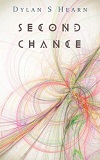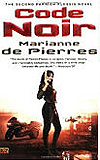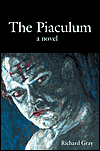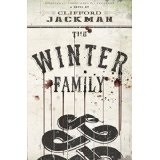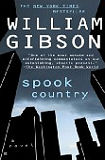
Spook Country, by William Gibson
Book Review by James Michael White
Then again, a book titled Spook Country isn't necessarily about the plot, really. It's about the spy biz at least as much as it's also about William Gibson's vision concerning our once-upon-a-time future now come to visit us. That kind of future-as-now involves the sorts of things Gibson has been writing about for years: mega corporations run the world, private security contractors increasingly handle the dirty business of both private and national security, oddball characters with kooky names like Bobby Chombo and Hubertis Bigend exist at the peripheral opposites of society and yet play increasingly important roles in seemingly big events, and computer stuff is cool, even if overblown and oversold.
Yet a story wanting to wallow in the ambiguities of spies, lies, and shifting perceptions, one that sums up its own intentions with such a line...
"I've just seen some people," [Hollis] told him, "tonight, do the single strangest thing I imagine I'll ever see."
... is bound to run into trouble resulting from that very intention, which, though putting forth some mildly strange situations and characters, also manages to rob them of any seeming importance precisely because of the aforementioned ambiguity. Characters like Hollis participate in the plot but don't really seem to need to (ambiguous motive), and though there's an engine driving this book, finding out what it is will probably disappoint more readers than will be satisfied (ambiguous affect: though the point of all this makes sense to at least one character involved, it remains merely a curiosity for the primary one, intrepid journalist Hollis Henry, and therefore generates for readers a great big sense of, Why should we care?).
What's more, Gibson's political take on the material as it relates to a post 9/11 world and the war on terror seems common enough to be uninteresting in most parts, and simply cynical in others. The former gives us lines like these: "If a nation's laws are situational, that nation has no laws, and soon isn't a nation," and, "Are you really so scared of terrorists that you'll dismantle the structures that made America what it is?" This is about as insightful as, "Fire hot. Don't touch!" and seems more like essay fodder than clever novel material, especially since the position espoused is merely ancillary to the plot without being essential to it.
The cynical poise, on the other hand, gives us material like this:
She remembered Inchmale describing Stockholm syndrome, the fondness and loyalty that one could supposedly come to feel for even the most brutal captor... Inchmale thought that America had developed Stockholm syndrome toward its government, post 9/11.
Though an interesting idea, certainly better than the earlier-mentioned jejune faux insight, it's still not what the story is about, so it, too, exists merely as an aside, without being deeply a part of the action of the novel.
And even though there are a couple of characters who literalize the Stockholm Syndrome concept, one holding the other captive on a chemical leash, the captor, a militaristic fellow by the name of Brown, is about as stock as they come. He does little more than be the inept muscle-with-a-gun and fill out some pages before eventually suffering a frustrational meltdown that looks more perfunctory than believable. The other fellow, by the name of Milgrim, exists nominally to translate intercepted messages, muse inanely (see paragraph six, above), and complete the Stockholm syndrome metaphor.
Disappointing as these matters may be, there's yet one more area where Spook Country falters, and this occurs at the prose level. Though Gibson always tends to a clipped and fragmentary style, his writing, here, seems occasionally off key, sometimes one too many sentence fragments occurring at just the wrong time, or the writing bending over backwards to remind us of Gibson's SF roots with this kind of contextual needle-skipping: "And Inchmale, never blind to the background radiation of his own singularity, would have been all too ready to agree."
Spook Country, then, seems like a novel concerned with the least interesting of its ideas, and though the spy biz should offer lots of exciting story possibilities, only those dulled by degrees of ambiguity are explored, rendering the whole of the tale in variances of shoulder-shrugging gray.
|
Click here to buy Spook Country, by William Gibson on Amazon
|
Spook Country, by William Gibson on Amazon

| More Books You Might Like |
| Comments on Spook Country, by William Gibson |
| There are no comments on this book. |
